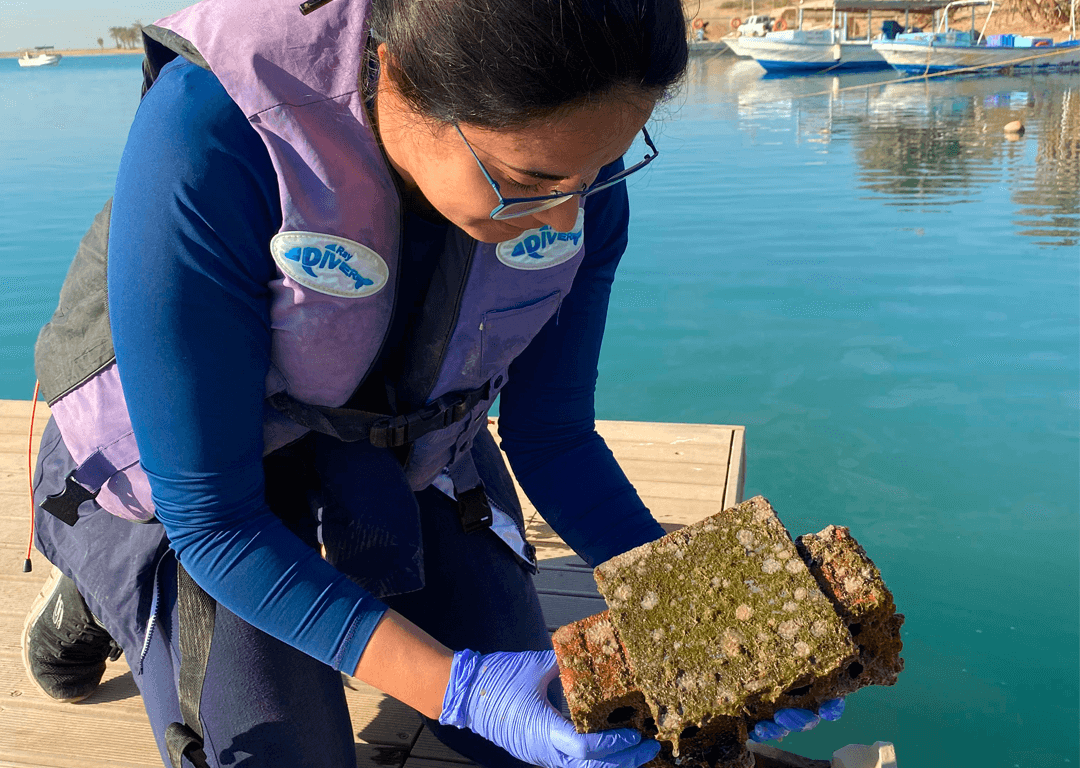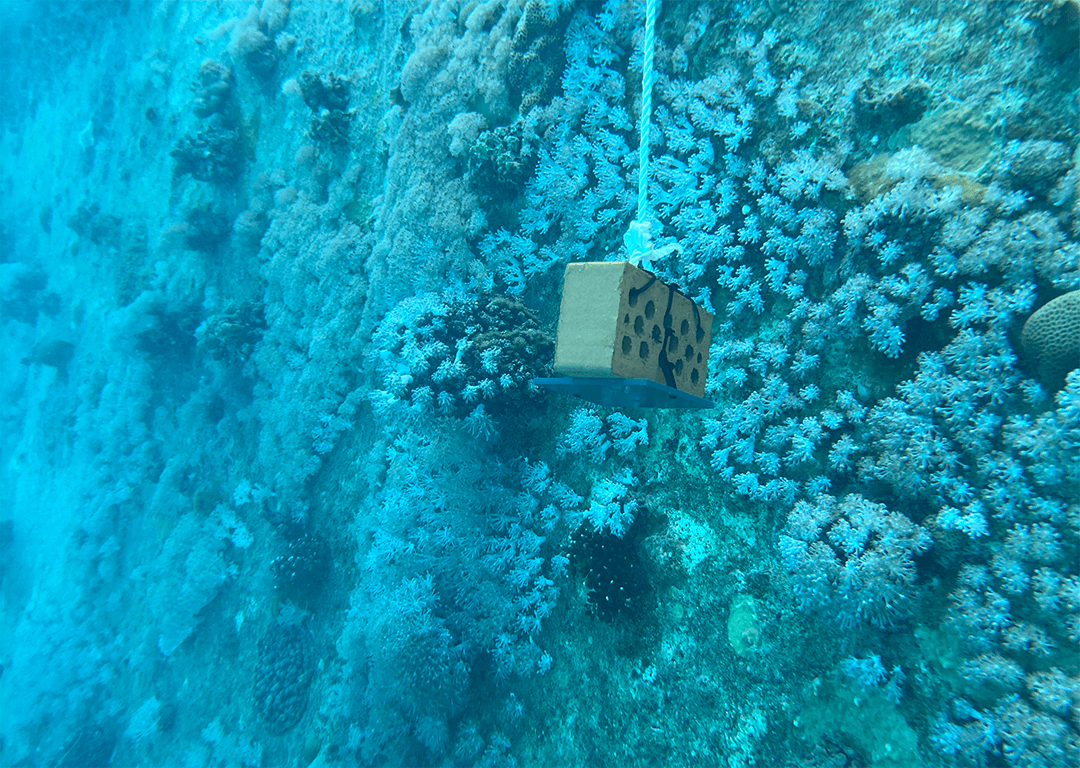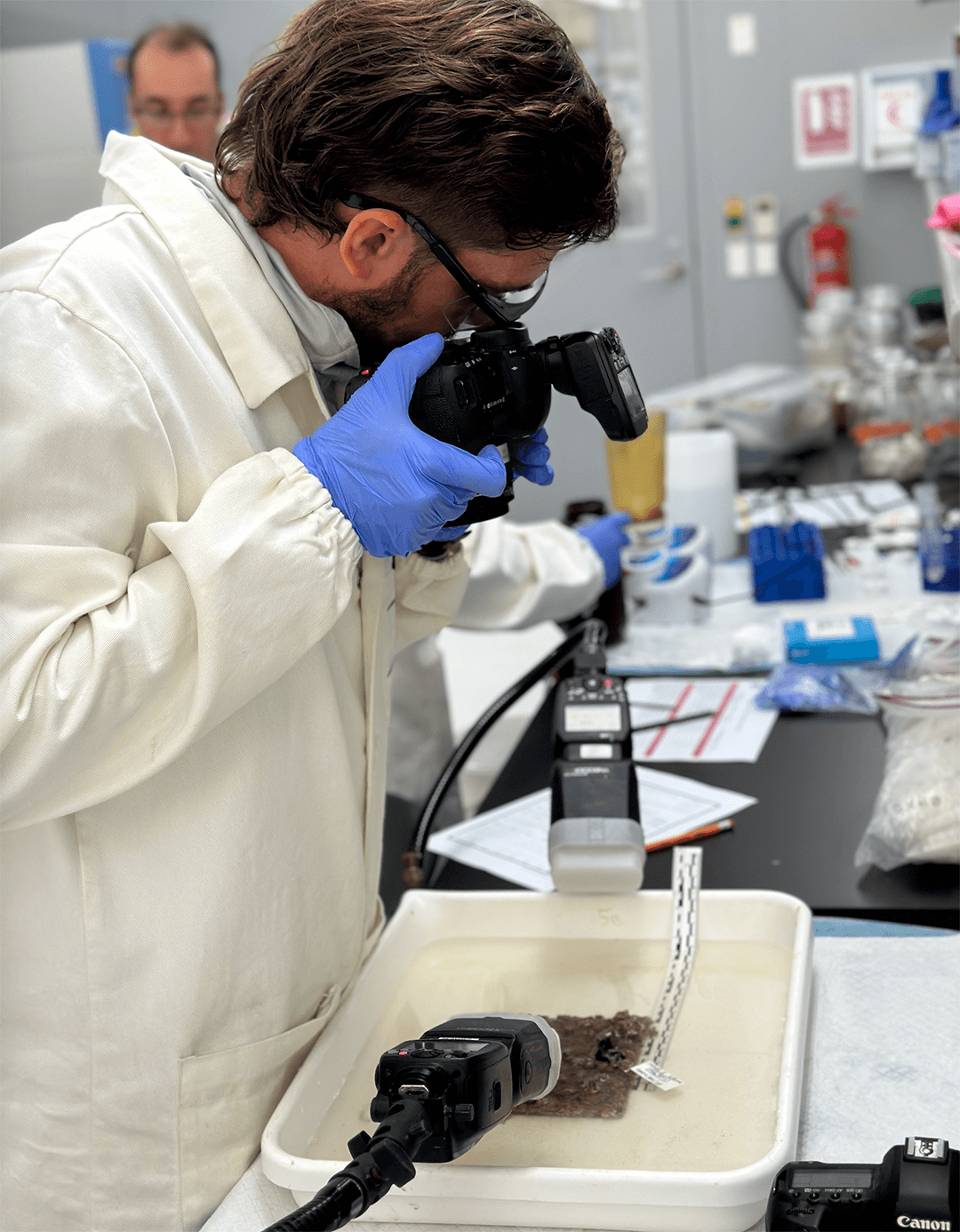KAUST and National Center for Wildlife partner to protect marine ecosystems

A KAUST researcher pulling specimens out of the Red Sea.
- KAUST collaborates with the National Center of Wildlife to protect Saudi waters from marine invasive species
As nations around the world invest in the blue economy. Saudi Arabia alone expects this sector to grow by SAR 22 billion and create nearly 100,000 jobs by 2030. However, unwanted foreigners threaten this effort: invasive marine species. These biological stowaways often reach new shores through global shipping and aquaculture, costing the world tens of billions of dollars annually. At the heart of the Kingdom’s efforts, KAUST is collaborating with National Center for Wildlife (NCW) on pioneering research to develop a knowledge base and scientific tools that enable Saudi Arabia to protect its coastal ecosystems and secure its marine economy.
“Marine protection is no longer optional, it is a strategic imperative for Saudi Arabia’s environmental and economic future. As we accelerate progress toward Vision 2030, our marine ecosystems must be safeguarded to unlock the full potential of the blue economy. This partnership with KAUST brings together world-class science and national priorities. It empowers us with cutting-edge tools, risk models and early warning systems that will anchor Saudi Arabia’s leadership in marine biosecurity. By acting decisively today, we are securing the long-term health of our waters and the prosperity they sustain ” said Dr. Mohammad Qurban, CEO of the National Center for Wildlife.

Collecting specimens in the Red Sea.
Saudi Arabia is advancing its marine biosecurity efforts by building comprehensive data and knowledge systems to inform strong national policies. As part of this effort, teams from KAUST and the NCW are conducting biodiversity surveys along the Kingdom's Red Sea and Arabian Gulf coasts to support species identification and risk assessment. This collaboration also includes developing specialized training programs for Saudi scientists to strengthen national capacity in managing marine environments and addressing invasive species threats.
"These databases act like a census of the ecosystem diversity, documenting each resident and its distribution in space and time," said Dr. Susana Carvalho, Associate Professor of Marine Science at KAUST and lead scientist of the program.

Examining specimens in the lab
Field teams from KAUST and NCW have surveyed 34 sites across the Red Sea and the Arabian Gulf to assess marine biodiversity and identify the presence and potential spread of invasive species. So far, more than 10,000 samples have been collected and 200 species with potential marine invasive traits have been identified. These finding are expanding the national knowledge base of marine life in Saudi waters and informing the development of early detection, monitoring and surveillance systems. The samples represent a full spectrum of marine life, from large fish to microscopic organisms.
"Our research is helping to establish early detection and rapid response systems, which are the most effective way to protect the Kingdom's marine ecosystems from the spread of invasive species," said Dr. Susana Carvalho, Associate Professor of Marine Science at KAUST.
In May, NCW staff participated in a weeklong workshop hosted by KAUST, focused on to learn advanced techniques and protocols for assessing the risks posed by marine invasive species. The sessions covered methods to evaluate their potential impact on the environment, national industries and public health.
"The spread of invasive species is a global issue, and its impact on biodiversity, fisheries, and infrastructure requires urgent, science-based action.” Said Abdulnasser Qutub, Head of the Marine Division at the National Center for Wildlife. “Through this program, we’ve identified over 70 non-native species in Saudi waters, several of which are known to be invasive in other regions. What sets this initiative apart is its combination of advanced technologies such as eDNA for rapid detection, and the training it provides to NCW staff with globally recognized risk assessment tools."
This collaboration reflects a growing model of national partnerships that integrate Saudi scientific talent and research capacity to strengthen marine ecosystem protection. By expanding knowledge of the Red Sea and Arabian Gulf, and building a scientific baseline through training and fieldwork, KAUST and NCW are helping lay the foundation for more effective and sustainable marine resource management across the Kingdom.

